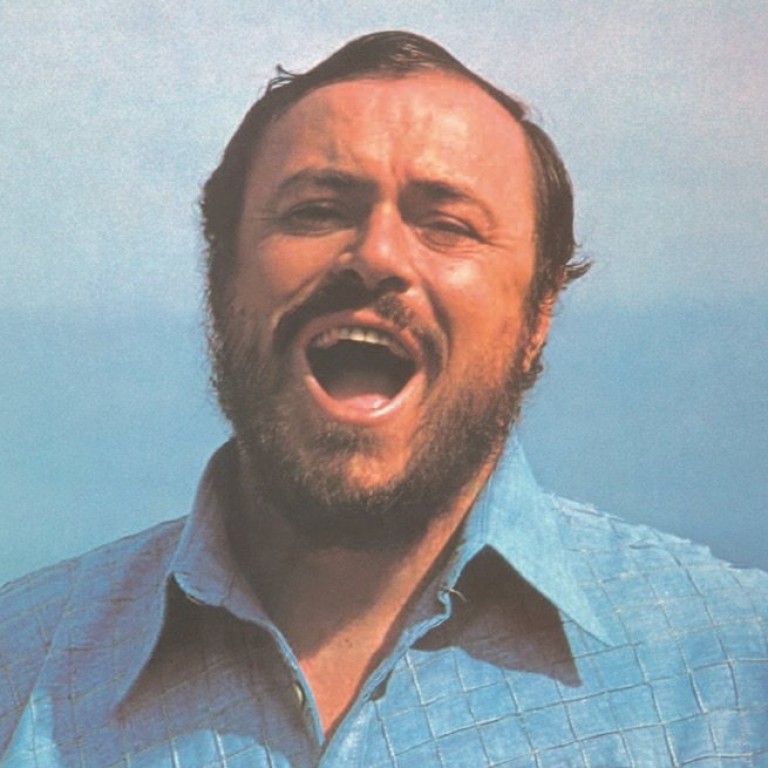
Luciano Pavarotti changed my life: Opera Hong Kong artistic director and singer on the Italian tenor’s indelible influence on his career
- Warren Mok bought two albums by Pavarotti in 1979 while at college in Hawaii and soon he was studying every facet of the Italian master’s singing
- He acted as his understudy in 1987 in Berlin, where he received personal attention from the Italian, and the two later met again backstage in Hong Kong in 2005
’O Sole Mio – Favourite Neapolitan Songs and Verismo (both 1979), album-length collections of traditional songs and operatic arias, respectively, are among the most popular studio recordings by legendary Italian tenor Luciano Pavarotti. Warren Mok Wah-yeun, artistic director of Opera Hong Kong, tells Richard Lord how they changed his life.
I bought them in 1979. ’O Sole Mio was the first album I bought. I was at college in Honolulu, Hawaii, and I bought it at a record shop in the Ala Moana Center, the biggest shopping mall in Honolulu. Before I bought the album, I was introduced to it by a friend who was a professor at the University of Hawaii – not of music but of history. He introduced me to opera: he took me to see opera in Hawaii, and I first heard these records at his home.
I heard these records and I just thought, “Wow, what an amazing voice!” I listened to him every day while I was a student: his singing technique, his diction, how he pronounced and punctuated each word of Italian. He has the clearest diction of all singers.
In 1980, I saw Pavarotti perform in Hawaii; he had a recital there on his way to Australia. I was in the last row on the balcony, and I paid US$100 for one single ticket. It was totally worth it. He was even better live than on the records. I thought, “How can this be possible?”

That concert was like reading a textbook. I was studying voice at the time, including Italian antique arias, and it was like a lesson, a masterclass on the stage. I felt lucky to have heard his albums and then to have been able to see him the next year.
Then I went to New York, to the Manhattan School of Music, for my master’s. I was working part time in the Met (Metropolitan Opera House) gift shop, and I could go and see rehearsals and performances for free. I saw Pavarotti many times; I would even see him in the Met canteen.
The first time I encountered him face to face was in 1987, when I was at the Deutsche Oper (in Berlin, Germany) as part of a young artist programme, and I was covering him (acting as his understudy) in Donizetti’s The Elixir of Love. I was in the rehearsal room and he walked in when I was singing on stage.
I did the whole two hours, and he just sat there and watched. I thought, “Oh my God, it’s my idol sitting there”; it was very scary. But he was very kind to me – he said I had a beautiful voice. When he was on stage, he would call me, “Come closer and see how I sing.” Every night his assistant would bring him a bucket of iced water, not hot water like the Chinese drink, and then I started drinking iced water to cool down my vocal cords. To this day friends still tell me in restaurants not to do that.
I went to see him backstage when he came to Hong Kong in 2005, on his last world tour (Pavarotti died in 2007, aged 71), and he said: “I remember you from Berlin.” He sees so many singers; I was happily shocked.
Even now, before I go on stage, I always listen to his performances. He is forever my hero, forever my idol.

